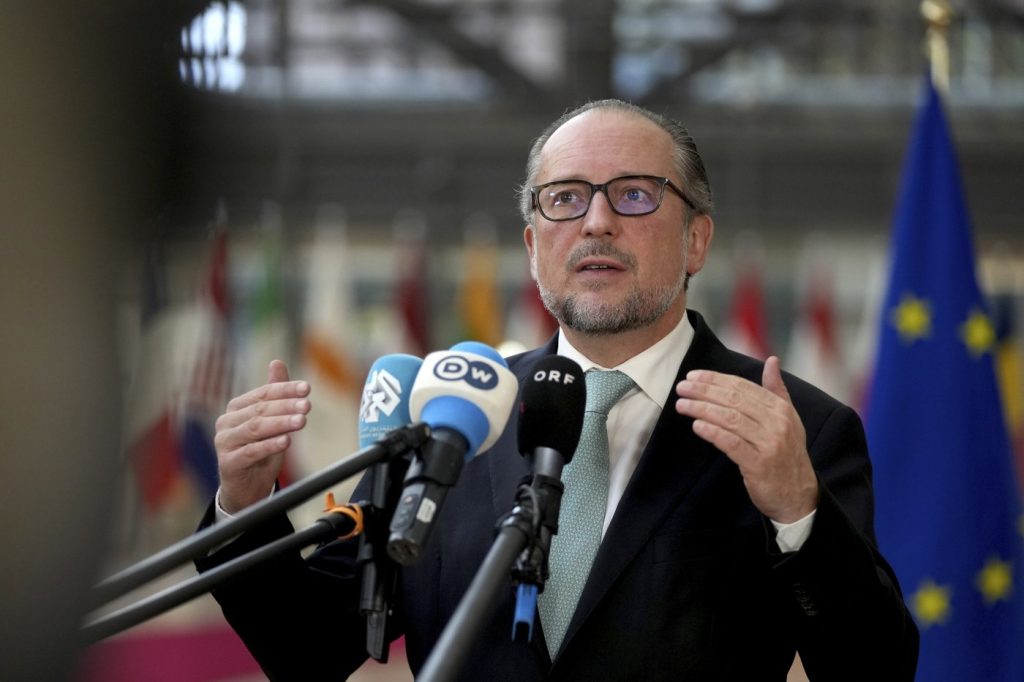VIENNA (AP) — Austrian Foreign Minister Alexander Schallenberg has been appointed as the interim leader of Austria while the far-right Freedom Party works on forming a new coalition government. This announcement was made by the president's office on Wednesday. Schallenberg, who is 55 years old, will take on the responsibilities of outgoing Chancellor Karl Nehammer following Nehammer's decision to resign.
Chancellor Nehammer's resignation comes in the wake of unsuccessful efforts to establish a coalition government without the participation of the Freedom Party. These negotiations collapsed over the weekend, prompting Nehammer to announce his intention to step down, effective Friday. The political landscape in Austria remains tense as the Freedom Party seeks to navigate the complexities of coalition-building amidst ongoing discussions.
The situation in Austria highlights the challenges faced by political leaders in forming stable governments in a climate marked by rising populism and fragmented party landscapes. The Freedom Party, known for its far-right positions, has increasingly become a significant player in Austrian politics, complicating traditional coalition dynamics.
The appointment of Schallenberg as interim leader signals a continuation of the existing political strategy, as he was previously serving as the Foreign Minister and is well-regarded in diplomatic circles. His experience may be instrumental during this transitional period, as Austria grapples with both internal and external political pressures.
As the Freedom Party embarks on efforts to assemble a new coalition, all eyes will be on the negotiations and outcomes that follow. The political uncertainty in Austria may have broader implications for the region, especially in light of the increasing influence of far-right parties across Europe.
The developments in Austria reflect a significant moment in the nation's political discourse, as the struggle for power within the government continues to unfold. This interim leadership change could play a crucial role in determining the future political direction of Austria, especially in relation to the European Union and other international concerns.










